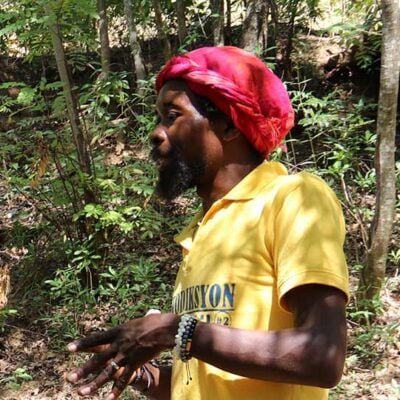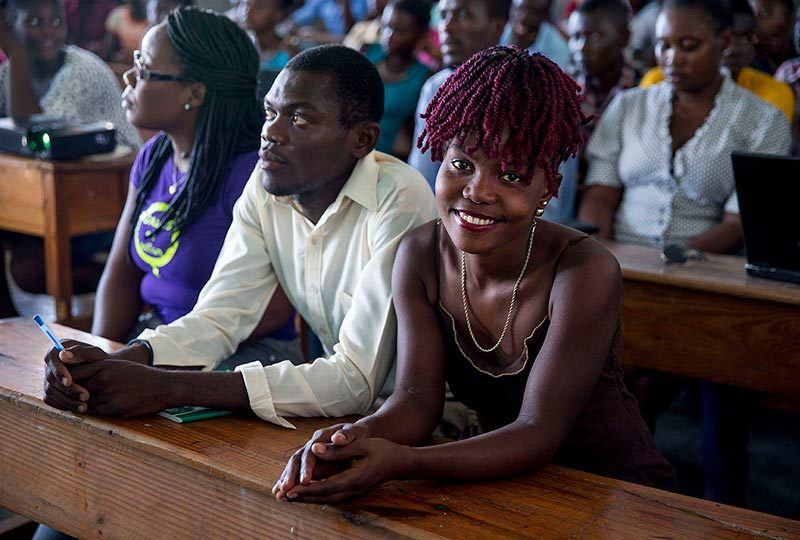
Celebrating 10 Years of Neges Mawon – and Generations of Haitian Resilience
Posts



Advocating for human rights, while responding to natural disasters in Haiti
In Haiti, the struggles of the capital, Port-au-Prince, radiate outwards. Though the city is the epicenter of the country’s compounding problems — a collapsed government that has given way to the take-over of violent street gangs, following multiple natural disasters — the fallout stretches well into Haiti’s more remote regions, where people lack any form …
Read More
AJWS Statement on the Dominican Republic’s Mass Deportations to Haiti
American Jewish World Service (AJWS) strongly opposes the Dominican Republic’s recent wave of inhumane mass deportations to Haiti. Even before Dominican President Luis Abinader announced on October 2 plans to expel up to 10,000 people per week, his administration was carrying out deportations in ways that violated the country’s own protocols and laws. There …
Read More
Stories

Investigative journalists hold Haiti’s officials accountable
Investigative journalists keep Haiti’s officials accountable for responsible reconstruction. Billions of dollars in foreign aid and reconstruction projects have flooded into Haiti since the earthquake, but the process for deciding how the money will be spent is not transparent. While displaced earthquake survivors languish in tent camps, U.S. government funds have sometimes been directed toward …
Read More
Activists stand up to Haiti’s anti-LGBT extremists
Homophobic hatred sizzled in Haiti’s streets last summer. Religious leaders marched throughout the country to protest same-sex relationships and stir up anti-LGBT sentiment. As these extremists launched a vicious campaign, Haiti’s small, but growing number of advocates for LGBT rights—like the aptly named AJWS grantee Kouraj (Courage)—spoke out.
Read More
Dominican-Haitian communities help earthquake survivors
Dominican-Haitian communities help earthquake survivors. In the wake of the 2010 earthquake, AJWS grantee Movimiento de Mujeres Dominico Haitiana (MUDHA) organized Haitian communities in the Dominican Republic to rapidly respond to the immediate needs of disaster victims across the border. Just 48 hours after the disaster, MUDHA mobilized Dominican-Haitian communities to assist people in some …
Read More
Supporting Haitian Migrants and Dominicans of Haitian Descent
Many Haitian migrants and Dominicans of Haitian descent work in low-wage jobs on the country’s sugar and banana plantations, or as construction workers or laborers in the informal economy. They reside in bateyes—poor districts that were established to house sugar plantation laborers and their families. Because Haitians and their descendents are often denied citizenship rights …
Read MoreWhere We Work
Publications
Dvar Tzedek
Bechukotai
Walking—putting one foot after the other—is, for many of us, our most basic vehicle for navigating the world. Yet we probably don’t put much thought into it. We’re more concerned with where we’re going than how we’re getting there; and unless we’re on a hike, we rarely think of walking as an end in itself, or count it among our blessings.
Read MoreKi Tetze
Since 2007, more than 20 workers committed suicide at the Shenzhen, China factory of the Foxconn Corporation, a partner of Apple and major producer of iPhones worldwide.[1] In an article for Wired Magazine, Joel Johnson asks whether his incessant desire for the latest gadget contributed to these deaths in a factory that China Labor Watch reports provides overtime and employee amenities, yet is known for grueling hours and intense employee pressure.[2] Johnson writes…
Read MoreVayakhel-Pekudei
Parashat Vayakhel-Pekudei describes the first major public construction project of the Jewish people—the Mishkan (Tabernacle). The text emphasizes the truly communal nature of the project as the Israelites freely donated the construction materials—gold, silver, yarn, linen, animal skins, acacia wood, etc. In fact, the Israelites contributed so enthusiastically that they amassed a surplus of materials and Moses had to ask them to stop bringing donations.
Read MoreVayakhel-Pekudei
Parashat Vayakhel-Pekudei describes the first major public construction project of the Jewish people—the Mishkan (Tabernacle). The text emphasizes the truly communal nature of the project as the Israelites freely donated the construction materials—gold, silver, yarn, linen, animal skins, acacia wood, etc. In fact, the Israelites contributed so enthusiastically that they amassed a surplus of materials and Moses had to ask them to stop bringing donations.
Read More
